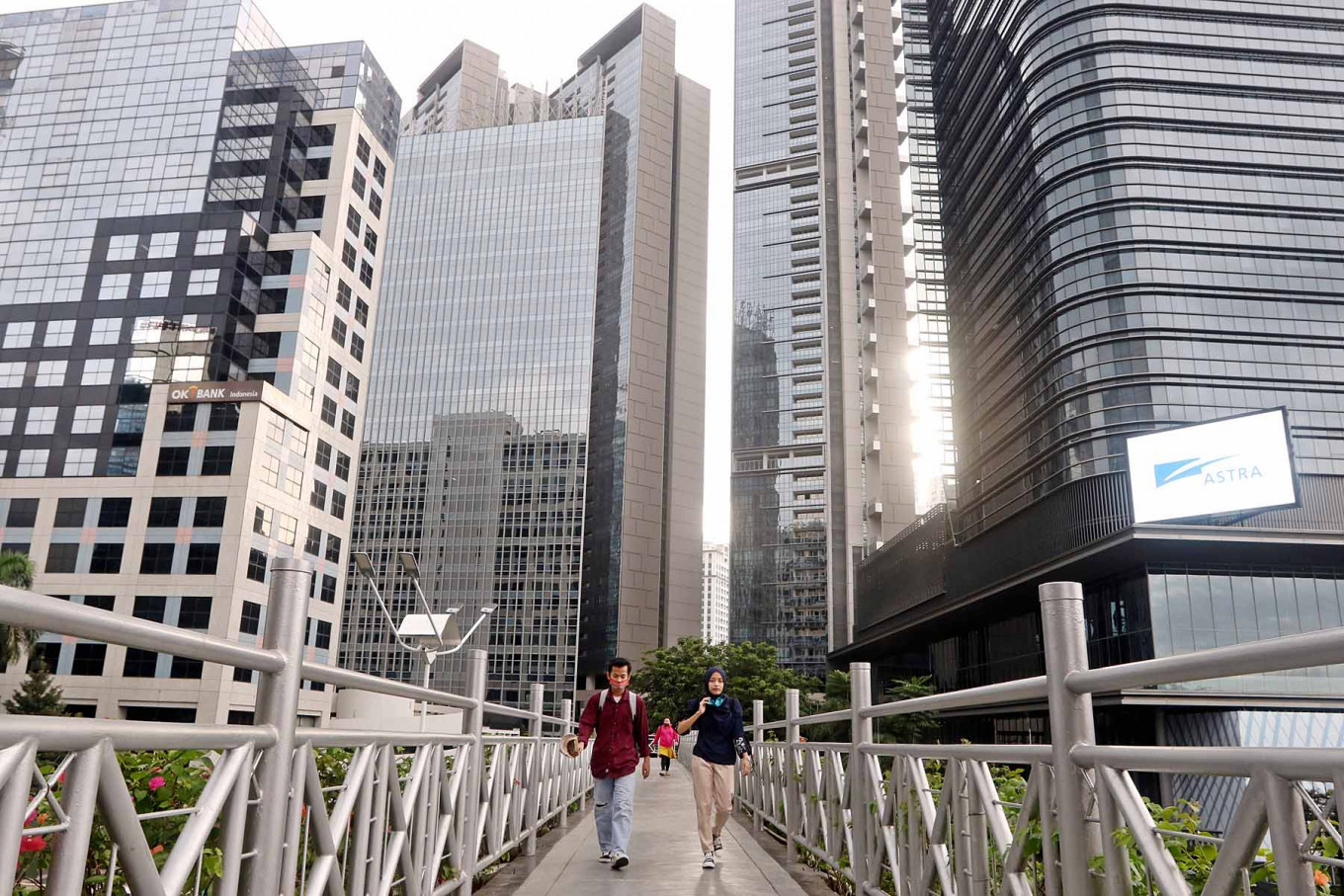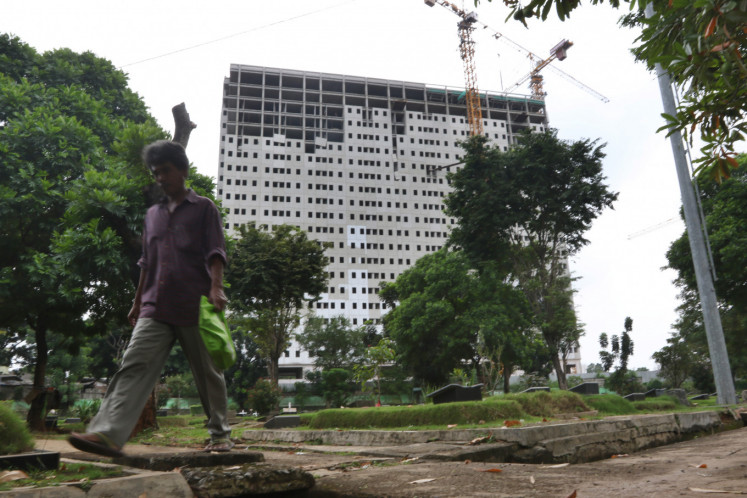Jakarta property market off to rough start this year
Jakarta's property sector remains under pressure as occupancy rates for office and retail space are down, while the government incentive has yet to spur apartment sales.
Change Size

J
akarta’s property market saw sluggish growth in the first quarter of this year, confirming analysts’ expectation of weak market growth in the capital city’s property market throughout 2021.
Property consultancy Colliers International reported declining occupancy rates in retail and offices as well as muted sales in new apartments as business activity and consumer spending remained low.
“If we look at the demand cycle, the bottoming was expected in 2020 but we can see that, with the reality of a pandemic that is out of our control, we now expect the cycle to continue and may reach its lowest point this year,” said Colliers research head Ferry Salanto.
The pandemic battered Jakarta harder than most provinces as the capital remains the outbreak’s epicenter, which forces the Jakarta administration to occasionally impose stricter and longer mobility restrictions that include limiting office and shopping occupancies.
Offices outside the central business district (CBD) saw occupancy rates drop 1 percentage point quarter-on-quarter (qoq) to 79.7 percent in the January-March period, but the rate steadied at around 80 percent for CBD offices, according to Colliers data.
Rental prices were also down 1 percent qoq to Rp 255,185 (US$17.48) per square meter for CBD offices and by 5 percent qoq to Rp 181,287 per sq m for non-CBD offices.
“[Demand] is generally in decline and the new buildings that just started operating also face difficulties in seeking tenants to fill their empty spaces,” said Ferry. “So there is an adjustment in rental prices.”
He went on to say that tenants either moved or reduced their rented space due to the restrictions. Coupled with the expected new offices entering the market this year, the two factors would pressure office occupancy rates in the capital city.
Read also: Downward occupancy trend in commercial spaces in Indonesia to sustain in 2021
The total supply of offices in the CBD is expected to rise 3.37 percent year-on-year (yoy) to around 7 million sq m in 2021.
For apartments, sales reached only 420 units in the first quarter, lower than the average of around 481 units last year. The price also stagnated at Rp 35 million per sq m, the same level seen in the January-March period last year.
While the government incentive has not spurred sales, Colliers is expecting some developers to speed up construction so they can sell their properties in the second and third quarters to exploit the incentive. Four projects are expected to be introduced this quarter.

Real Estate Indonesia (REI) chairman Totok Lusida said the nationwide sales of apartments worth less than or equal to Rp 2 billion rose on average 30 percent in March from the previous month.
“Right now, we are asking the government to extend the value-added tax incentive to December,” Totok told The Jakarta Post in a phone interview, adding that it would help developers spur a rebound this year, although they might not necessarily recover to the pre-pandemic condition.
Colliers also reported the occupancy rate of retail space fell by 6 percentage points yoy to 73.1 percent in Jakarta and 8 percentage points yoy to 71.2 percent in the satellite cities.
Read also: ‘We are dying’: No new shopping center openings, leasing grinds to halt
With renewed mobility restrictions, the rate of visits to shopping centers was only between 30 and 40 percent of the normal level in the first quarter of the year, according to Ferry.
The low level of visits forced some developers to delay project launches. While there were no new shopping centers in the January-March period, six new shopping centers are expected to enter the market this year.
Property consultancy Cushman & Wakefield found a few brands launched stores in the first quarter nonetheless, such as sporting goods retailer Decathlon in the Mall of Indonesia (MOI) in North Jakarta and coffee chain %Arabica in Central Park in West Jakarta and Ashta in South Jakarta.
"Although there are new brands coming in, there are also some brands closing their branches such as [retail company] MUJI and [bookstore chain] Kinokuniya, which now operates only its branches in Grand Indonesia and focuses on online sales," Arief Rahardjo, the director of research and strategic consulting at Cushman & Wakefiled, told the Post via text message.









